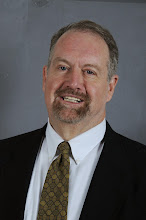Report finds few colleges have a Shakespeare requirement
The American Council of Trustees and Alumni has found that less than 8 percent of the nation's top universities require English majors to take a course focused on Shakespeare.
The study, "The Unkindest Cut: Shakespeare in Exile 2015," found that only four of the nation's 52 highest-ranked universities and colleges by U.S. News & World Report have a Shakespeare requirement.
Michael Poliakoff, vice president of policy for the Washington, D.C.-based council and lead author of the study, called the findings "a terrible tragedy."
"It is with sadness that we view this phenomenon," he said by phone. "It really does make us grieve for the loss to a whole generation of young people who would look to a college or university for guidance about what is great and what is of the highest priority."
The report was released Thursday on what is believed to be Shakespeare's birthday in 1564. It comes a day after the new musical "Something Rotten!" opened on Broadway that mocks The Bard as a rump-shaking word thief.
The schools that still ask English majors to study the Bard are Harvard University, the University of California-Berkeley, Wellesley College and the U.S. Naval Academy.
The report notes that English majors are often future English teachers and many will graduate without studying in depth the language's greatest writer.
"The Bard, who is the birthright of the English speaking world, has no seat of honor," the report says. "A degree in English without serious study of Shakespeare is like a major in Greek literature without the serious study of Homer."
But William Gleason, the chair of the Department of English at Princeton University, said it's impossible for students in his department to ignore The Bard. Learning about Shakespeare is a requirement in an introductory course that all English majors take and all theater majors must take a Shakespeare class to graduate. Plus, any examination of social issues inevitably leads back to Shakespeare. "He was usually there first," he said.
"He is such a vital presence in everything we teach, even if he's not the sole focus of a course," said Gleason, who specializes in American literature and culture. "Shakespeare exerts such an influence that it would be a mistake to think we could ever dismiss him."
The report argues that many colleges are downplaying the classics in favor of survey courses that introduce various styles of thought, such as Duke University's "Creatures, Aliens and Cyborgs."
"Rather than studying major literary works in depth, students are taught the rationale for and applications of critical approaches that are heavily influenced by theories of race, class, gender, and sexuality," it said.
The report urges trustees, alumni, donors and administrators to stop "a vicious circle of cultural illiteracy" by reviewing curriculums and re-evaluating what students need to learn.
"There is more common sense outside the academy and it's important for these voices to pull us back to the things that are right in front of us for us to cherish and to grow from," Poliakoff said.
The council calls itself is "an independent nonprofit committed to academic freedom, excellence and accountability at America's colleges and universities."
___
Online: http://www.goacta.org

No comments:
Post a Comment